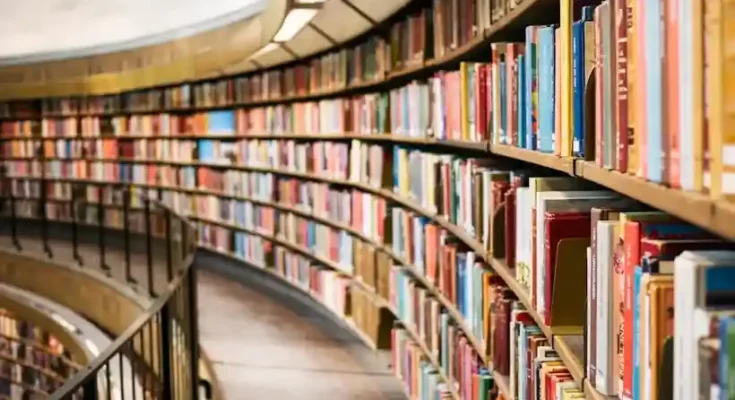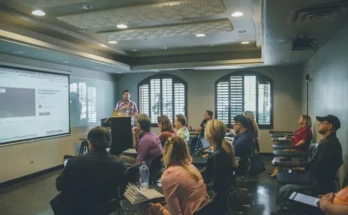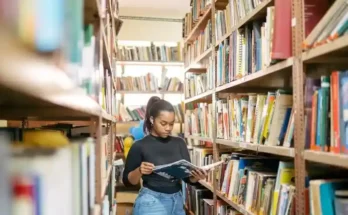Education is not merely the accumulation of facts, figures, or degrees—it’s the quiet force that shapes who we become. It builds our character, sharpens our thinking, and expands our capacity to empathize, question, and create. It’s more than what’s taught in a classroom. It’s the mindset we carry, the ability to adapt, the drive to understand the world and our place in it.
In today’s rapidly evolving society, where information doubles in a matter of days and industries transform overnight, education is no longer optional—it’s essential. It is the foundational tool for survival, innovation, and elevation in both personal and professional realms.
For far too long, access to education has been unequal. Societies have reserved knowledge for the privileged, for the elite, for the few. But education should not be a luxury reserved for certain social classes, genders, or geographic regions. It’s a human right—one that everyone, regardless of background or profession, deserves.
Without access to quality education, dreams remain dreams. But with it, they take flight. Every person has the right to know, to learn, to grow. And when we acknowledge that, the world begins to change—one student, one teacher, one classroom at a time.
What Education Really Teaches Us?
-
Critical Thinking and the Art of Asking Questions
The most powerful tool education offers is not the answer—but the question. Why is the sky blue? What makes justice just? How can we build a better future?
Education trains us to think critically, to challenge assumptions, and to seek truth. It teaches us to break down complexity, to approach problems systematically, and to see multiple perspectives. These skills are invaluable—not just in a classroom, but in boardrooms, homes, hospitals, and communities.
When people are educated, they’re harder to mislead. They become active citizens rather than passive observers. They engage with the world, not just exist in it.
-
Emotional Intelligence and Social Growth
Formal education isn’t only about academics; it also fosters emotional development. Through shared experiences, team projects, conflicts, and celebrations, learners build resilience, empathy, and communication skills. Education nurtures the ability to coexist, collaborate, and lead with heart and mind.
From the schoolyard to the university, learners gain more than knowledge—they gain humanity. They learn what it means to listen, to apologize, to inspire, and to compromise. These “soft skills” are often the hardest to learn, and yet they’re what the world needs most.
Education Without Barriers:
-
Access to Everyone
Historically, education has often been divided along gender lines. In many parts of the world, girls were denied access under the pretext of tradition, safety, or economic necessity. Today, while progress has been made, millions of girls and women still face barriers to education—from cultural stigma to poverty and violence.
This is not just an injustice—it’s a tragedy. When you educate a woman, you educate a family, a community, a generation. Educated women marry later, earn more, and are more likely to send their children to school. It’s a ripple effect that changes everything.
But education should also be safe and inclusive for boys, transgender, and non-binary individuals. Equality in education isn’t about leveling the playing field—it’s about making sure everyone is allowed on it.
-
Knowledge Has No Profession
A common misconception is that only students or white-collar professionals need education. But the truth is, education empowers every profession. Farmers benefit from agricultural science and weather prediction. Artists thrive on history and theory. Mechanics improve with technical literacy. Education enriches every path.
Whether you’re a carpenter or a CEO, a nurse or a novelist, education equips you with tools to do your work better, understand your world more deeply, and continuously evolve. Lifelong learning isn’t a luxury—it’s a necessity for personal growth and economic opportunity.
How Education Fuels Development?
-
Reducing Poverty, One Mind at a Time
Education is one of the most powerful tools for eradicating poverty. When individuals are educated, they gain skills that translate into better job opportunities, higher incomes, and improved living conditions. It doesn’t just change one person’s circumstances—it can uplift entire families and communities.
Countries that invest in education reap long-term economic rewards. They experience lower crime rates, better healthcare outcomes, and higher levels of civic participation. Education pays off in ways spreadsheets can’t always quantify—but that societies can’t afford to ignore.
-
Innovation Starts in the Classroom
Every groundbreaking idea, every disruptive innovation, every global solution starts with a curious mind asking, “What if?” Education fuels that curiosity. It turns questions into experiments, dreams into blueprints.
When educational systems prioritize creativity alongside literacy, and problem-solving alongside rote learning, they produce not just workers, but innovators. In the 21st century, ideas are the new currency—and education is the mint.
Challenges in Education:
-
Accessibility and Quality
Even today, millions of children and adults across the globe have limited or no access to education. Rural areas, marginalized communities, and war-torn regions face barriers that go beyond money. Infrastructure, internet access, teacher shortages, and cultural stigmas all contribute to the educational divide.
Moreover, access alone isn’t enough. The quality of education must also be addressed. An outdated or rigid curriculum, untrained teachers, and underfunded schools can do more harm than good. Students deserve not just the chance to learn, but the chance to learn well.
-
The Digital Divide
Technology holds incredible promise for education, especially in a post-pandemic world. Online courses, virtual classrooms, and digital libraries have made learning more flexible than ever. But access to technology remains deeply unequal.
For every student who can attend school from a laptop, there’s another who walks miles to a blackboard. The digital divide is the newest frontier in educational inequality—and closing it will take global effort, innovation, and investment.
The Future of Learning:
-
Lifelong Learning as a Way of Life
The era of “graduate once, work forever” is over. Today, education must be a lifelong journey. With industries evolving and skills becoming obsolete faster than ever, continuous learning isn’t optional—it’s vital.
Whether it’s learning a new language at 40, coding at 50, or going back to school at 60, education is for everyone, at every stage. It keeps minds sharp, opportunities open, and lives rich with purpose and possibility.
-
Rethinking
The future of education will be defined by relevance and adaptability. Critical thinking, creativity, emotional intelligence, sustainability, and digital literacy must become central to curricula. Students must be equipped not just to pass exams—but to solve real-world problems.
The classroom of tomorrow will be more inclusive, more interactive, and more focused on nurturing thinkers, not just test-takers. Education must evolve—not to serve systems, but to serve students.
Conclusion:
In a world filled with uncertainty, one truth remains constant: education changes everything. It empowers the powerless, enlightens the curious, and equalizes the unequal. It doesn’t just build careers—it builds nations.
Education doesn’t belong to governments or institutions. It belongs to people—to every child who dares to dream, to every adult who dares to try again, to every mind that dares to ask, “What if?”
Let us never forget: investing in education is not just an investment in the future. It is an investment in humanity.




